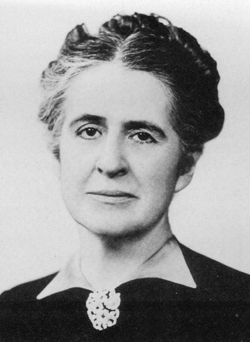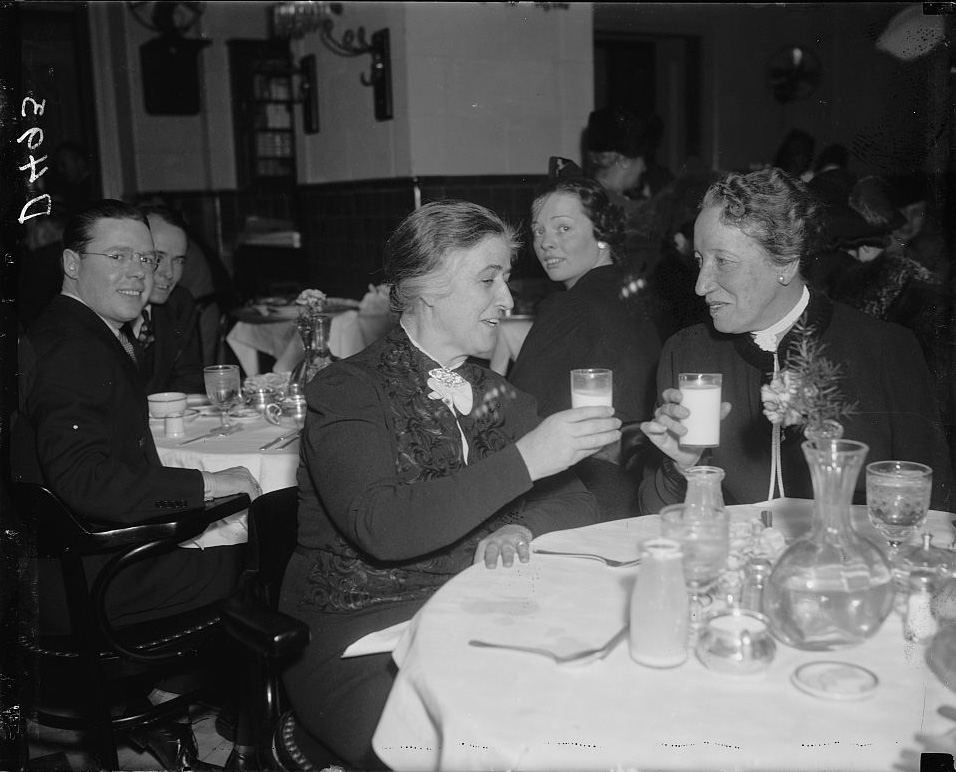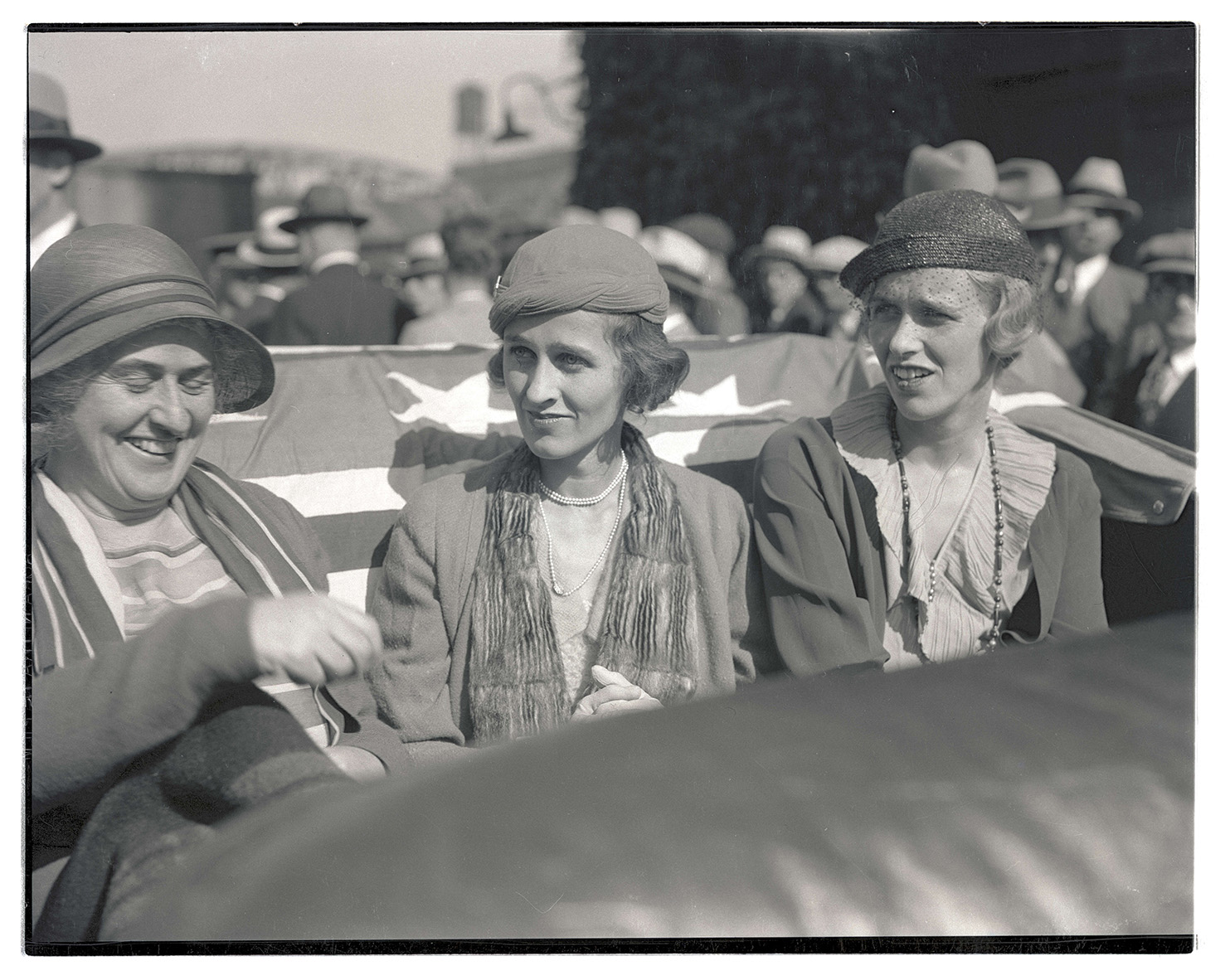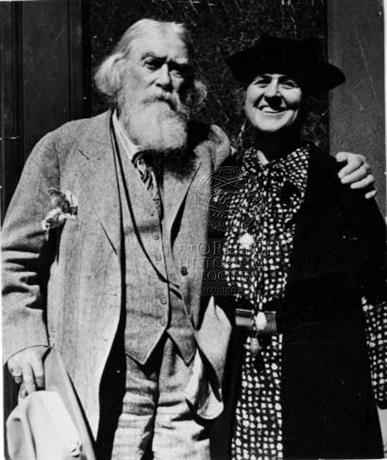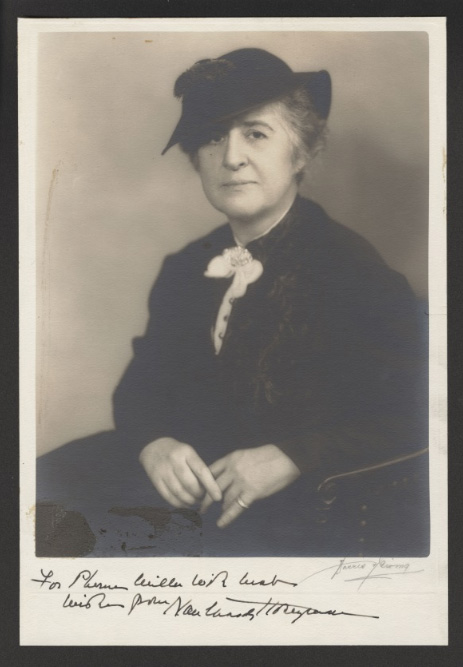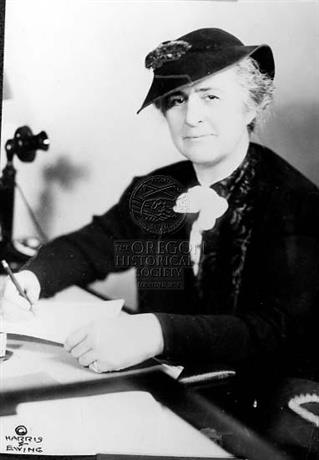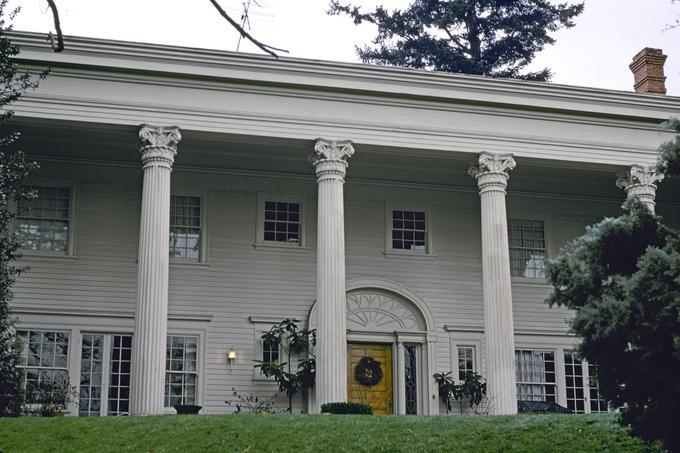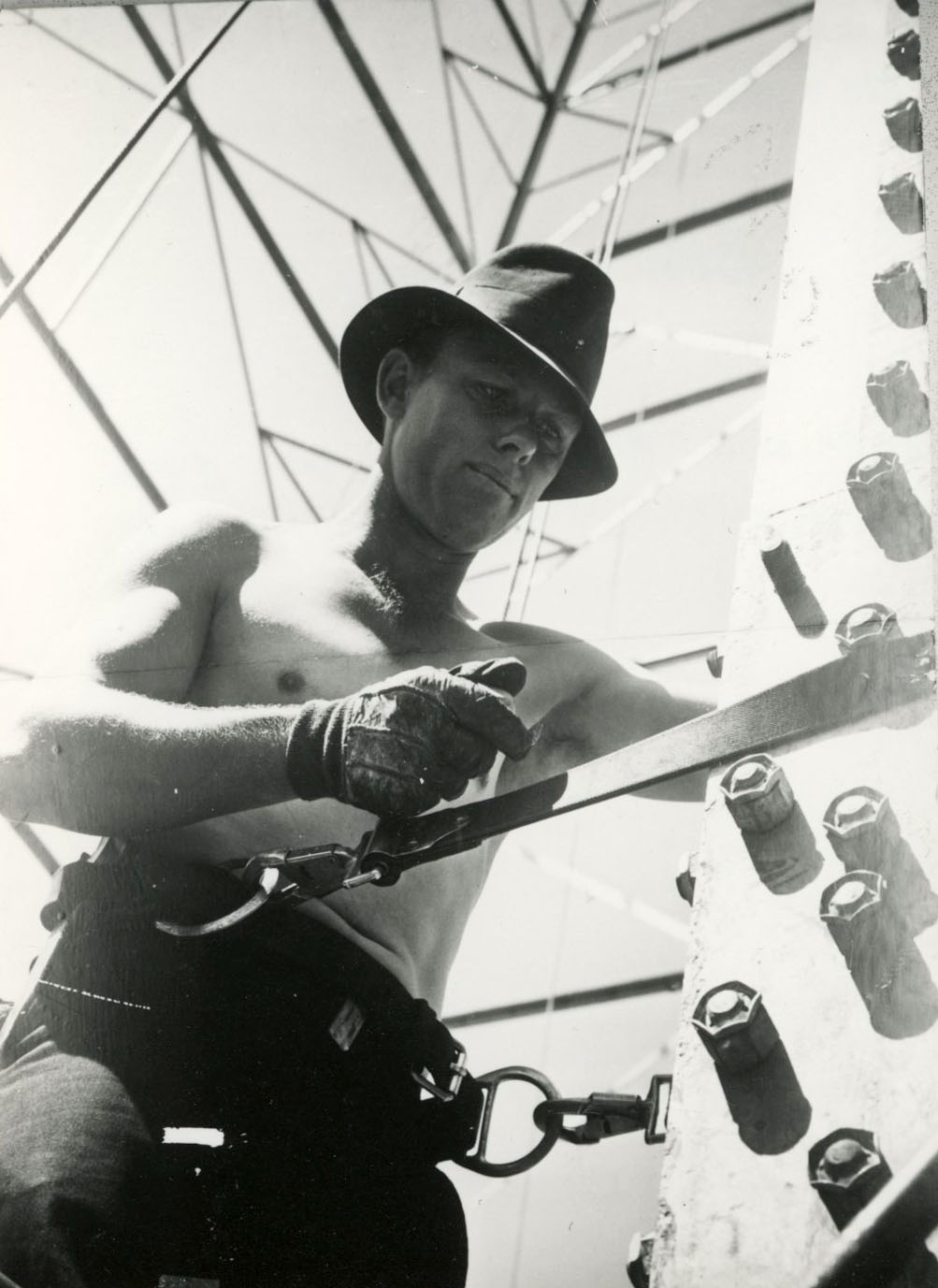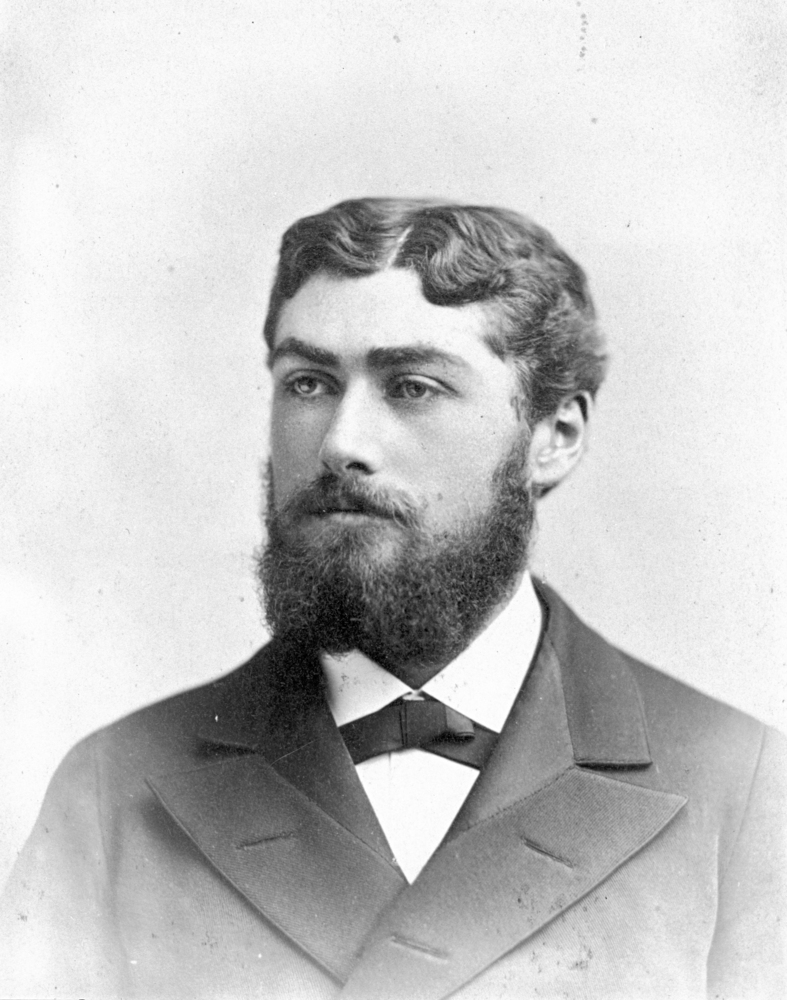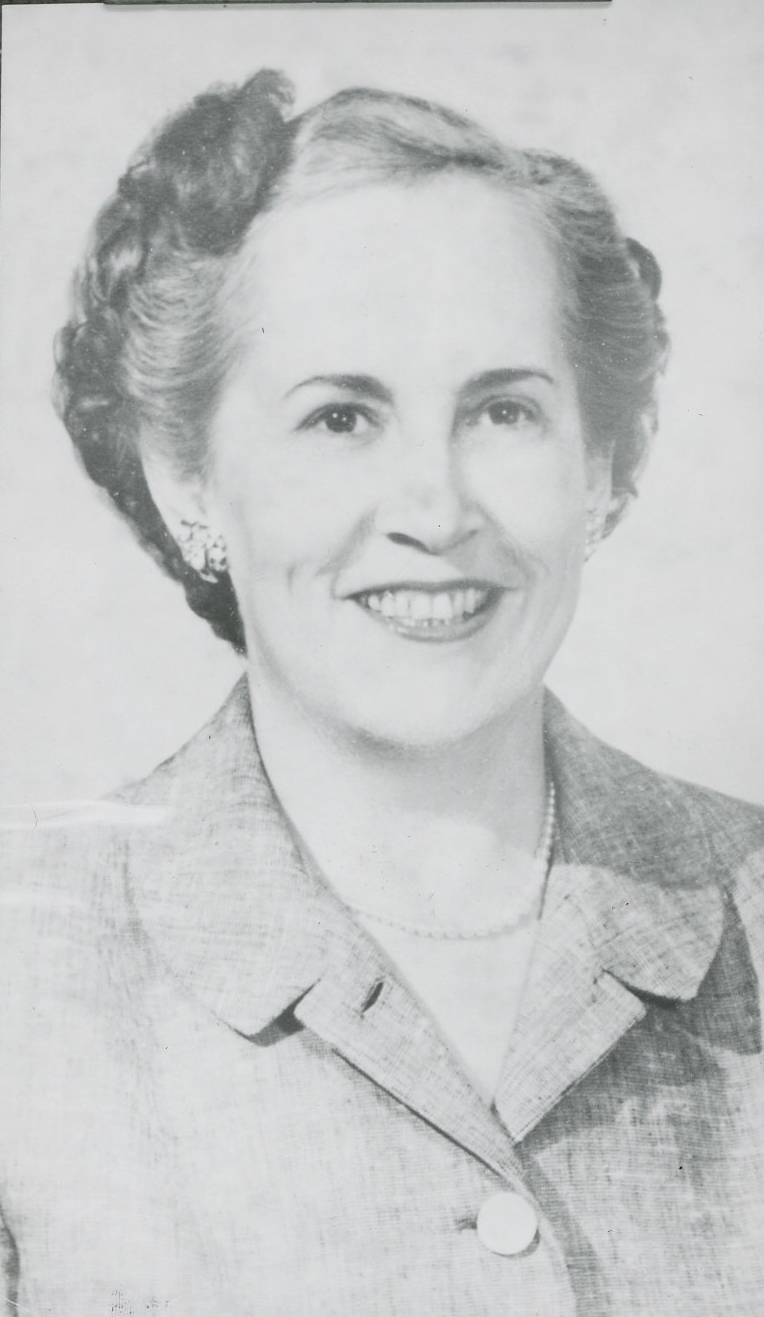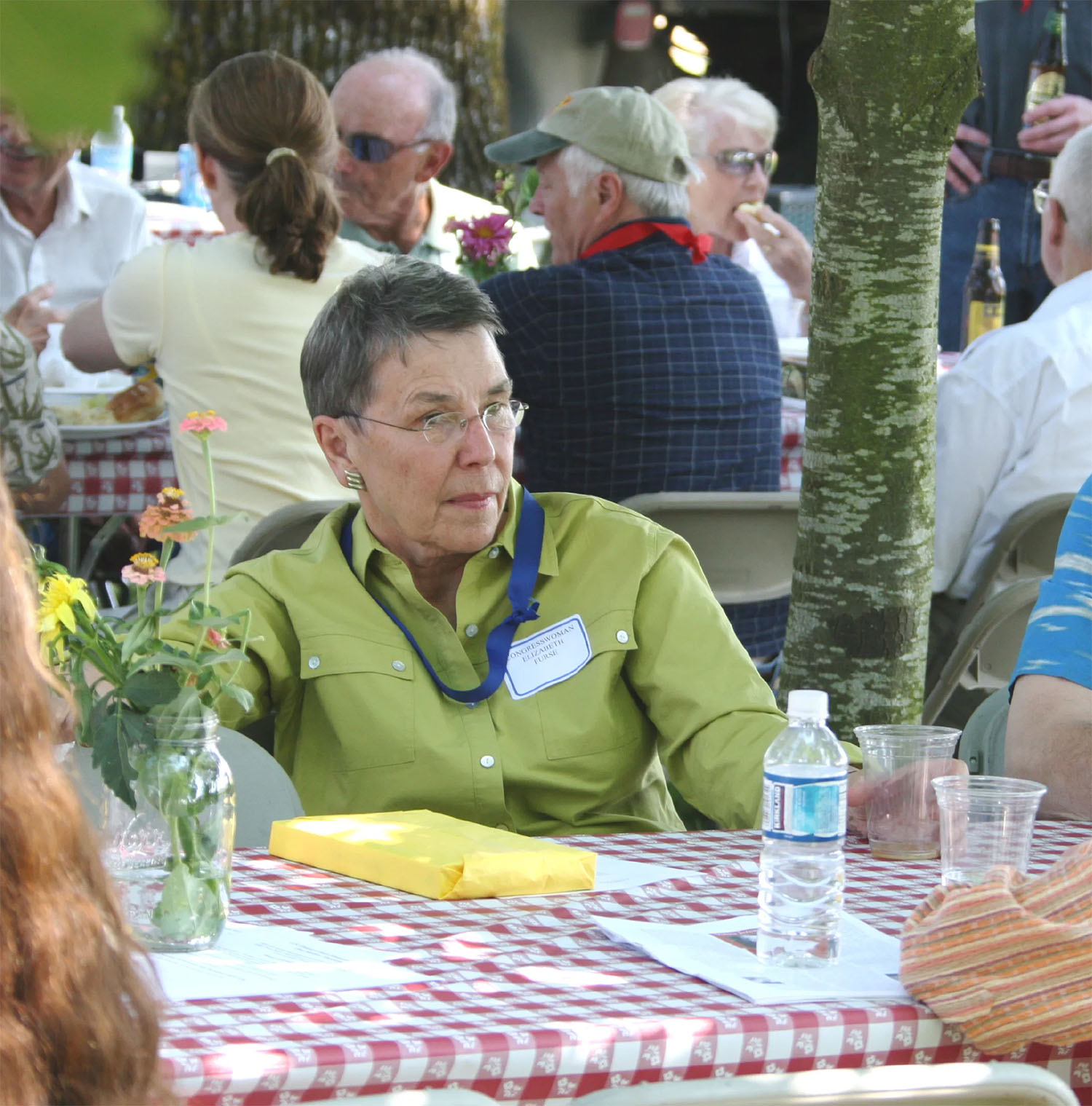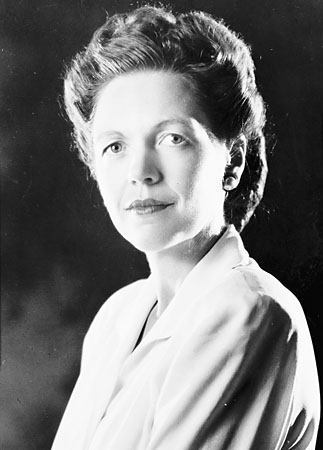Nan Wood Honeyman made history as the first woman elected to the U.S. House of Representatives from Oregon, serving from 1937 to 1939. Her friendship with Eleanor and Franklin Roosevelt connected her, and many Oregon Democrats through her, to national Democratic Party politics and policies from the 1930s to the 1960s.
Nan Wood was born in West Pont, New York, on July 15, 1881, the second child of Nanny Moale Smith and Charles Erskine Scott Wood. The family returned to their Portland home in 1883 after C. E. S. Wood completed a law degree at Columbia University. Nan Wood grew up among Portland’s wealthy and connected elite, but also with a father who supported the Democratic Party and who, as a lawyer, represented radical thinkers and activists.
Following her graduation from the private high school St. Helen’s Hall (now Oregon Episcopal School) in Portland in 1898, Nan Wood returned to New York to attend the exclusive Finch School (now Finch College) to study music. There she met Eleanor and Franklin Roosevelt and began a lasting friendship that would help define her life in Democratic politics. She returned to Portland and in February 1907 married David Taylor Honeyman, the manager in his family’s successful Honeyman Hardware business. During the next ten years, the couple had three children.
When her children were young, Nan Wood Honeyman was engaged in Portland society and with women’s organizations, including the Portland Visiting Nurse Association, the American Red Cross, and the League of Women Voters. She became active in the Democratic Party of Oregon in the 1920s and expanded her political networks while serving as chair of the Oregon branch of the Woman’s National Organization for Prohibition Reform beginning in 1931. She worked for repeal of national prohibition in 1933, believing that organized crime was the unintended and unacceptable result of the ban on alcohol.
Honeyman’s activism and leadership connected her with people and politics in Oregon, the Pacific Northwest, and the nation. With the national ascendency of Franklin Roosevelt and the Democratic New Deal in 1932, she helped organize the women’s division of the Oregon Democratic Party. She won a seat in the Oregon House of Representatives in 1935 and represented Oregon as a delegate to the Democratic National conventions in 1936 and 1940.
In 1936, Honeyman won a seat representing Oregon’s 3rd District in the U.S. House of Representatives. A strong supporter of Roosevelt’s New Deal, she served on three House committees—Indian Affairs, Irrigation and Reclamation, and Rivers and Harbors—and was an advocate for Bonneville Dam as a benefit to Oregon’s economy. She also supported public-owned power cooperatives and pushed for oversight of the Bonneville Power Administration by the Department of the Interior and congressional funding for building more power transmission lines to supply future energy needs. She supported New Deal policies that benefited Oregonians, including loans to farmers to continue crop production during the Great Depression.
Honeyman lost her bid for reelection in 1938 to Republican Homer D. Angell, who had almost a decade of experience in the legislature, and lost to him again in 1940, with small margins in both races. After a brief appointment to the Oregon Senate to fill a vacancy in 1941, she secured two appointed positions from the Democratic White House: senior representative of the Pacific Coast office of the U.S. Price Administration from 1941 to 1942 and Portland’s U.S. Collector of Customs from 1942 to 1953.
David Honeyman died in 1946 following the difficult 1942 bankruptcy of the Honeyman Hardware Company. In the mid-1960s, Nan Wood Honeyman moved to California. She died in Woodacre, a small town northwest of San Francisco, on December 10, 1970.
-
![]()
Nan Wood Honeyman, 1939.
Oregon Historical Society Research Library, 011397
-
![]()
A "milktoast" between Nan Wood Honeyman and Rep. Caroline O'Day (NY), 1937.
Courtesy Library of Congress -
![]()
Nan Wood, Ecola Beach, 1900.
Oregon Historical Society Research Library, 011139
-
![]()
Nan Wood Honeyman, Betsey Cushing Roosevelt, and Anna Roosevelt Dall, 1932.
Oregon Historical Society Research Library, 371N2176 -
![]()
C.E.S. Wood and Nan Wood Honeyman, 1936.
Oregon Historical Society Research Library, 018257
-
![]()
Rep. Nan Wood Honeyman, c.1937.
Courtesy U.S. House of Representatives -
![]()
Nan Wood Honeyman at her Washington, D.C., office, 1937.
Oregon Historical Society Research Library, 011149
-
![]()
Nan Wood and David T. Honeyman house, Portland.
Courtesy University of Oregon Libraries
Related Entries
-
![Bonneville Power Administration]()
Bonneville Power Administration
In 1937, the impending completion of Bonneville Dam (1938) and progress…
-
![C.E.S. Wood (1852-1944)]()
C.E.S. Wood (1852-1944)
C.E.S. Wood may have been the most influential cultural figure in Portl…
-
![Edith Starrett Green (1910-1987)]()
Edith Starrett Green (1910-1987)
Democrat Edith Starrett Green represented Oregon’s 3rd Congressional Di…
-
![Elizabeth Furse (1936–2021)]()
Elizabeth Furse (1936–2021)
First elected to the U.S. House of Representatives in 1992, Elizabeth F…
-
![Maurine Neuberger (1906-2000)]()
Maurine Neuberger (1906-2000)
Maurine Brown Neuberger entered politics as an Oregon state legislator …
Map This on the Oregon History WayFinder
The Oregon History Wayfinder is an interactive map that identifies significant places, people, and events in Oregon history.
Further Reading
Moon, Katherine Lee. “Nan Wood Honeyman and the Politicization of Women in Oregon, 1870-1942.” M.A. Thesis, Portland State University, 2001.
Guide to the Nan Wood Honeyman Papers, Mss 193, Oregon Historical Society Research Library, http://nwda.orbiscascade.org/ark:/80444/xv50341/op=fstyle.aspx?t=k&q=nan+wood+honeyman
Nan Wood Honeyman, U.S. House of Representatives, http://history.house.gov/People/Listing/H/HONEYMAN,-Nan-Wood-%28H000754%29/
“Notable Oregonians – Nan Wood Honeyman – Congresswoman,” Oregon Blue Book http://bluebook.state.or.us/notable/nothoneyman.htm
“Death Ends Full Career of Nan Wood Honeyman.” Portland Oregonian, December 13, 1970, 53.
“Honeyman Services Set.” Portland Oregonian, July 28, 1946, 13.
“Oregon’s Woman Solon Off for Duties in Washington.” Portland Oregonian, December 19, 1936, 1.
“Senator Quits for New Post.” Portland Oregonian, October 5, 1941, 1.



